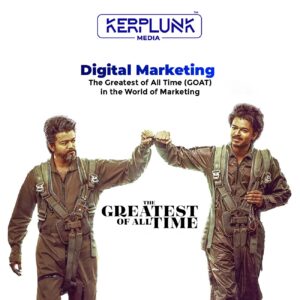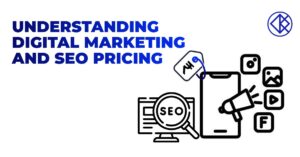Introduction:
In the vast realm of digital marketing, Search Engine Marketing (SEM) stands as a stalwart, guiding businesses through the labyrinth of online competition. SEM, a combination of paid advertising and organic search strategies, empowers brands to elevate their online visibility and connect with potential customers. In this blog, we’ll embark on a journey through the intricacies of SEM, exploring its components, best practices, and the pivotal role it plays in shaping the online success of businesses.
- Demystifying Search Engine Marketing:a. Paid vs. Organic Search: Understand the fundamental difference between paid search (PPC) and organic search (SEO). While SEO focuses on optimizing your website for better search engine rankings, PPC involves paid advertising to appear at the top of search results.b. Key Players: Google Ads and Bing Ads are the major platforms for PPC advertising. Google dominates the search engine market, making Google Ads a primary focus for many businesses. However, Bing Ads can also be valuable, especially for specific demographics.
- The Power of Keywords:a. Keyword Research: Conduct thorough keyword research to identify the terms and phrases your target audience is using. Tools like Google Keyword Planner can provide insights into search volume, competition, and related keywords.b. Long-Tail Keywords: Targeting long-tail keywords can be highly effective, as they often have lower competition and attract more qualified leads.
- Crafting Compelling Ad Copy:a. Ad Relevance: Align your ad copy with the intent behind users’ search queries. Relevant ads are more likely to receive clicks and conversions.b. Call-to-Action (CTA): Clearly communicate what action you want users to take. Whether it’s making a purchase, signing up for a newsletter, or downloading a resource, a strong CTA is crucial.c. Ad Extensions: Take advantage of ad extensions to provide additional information and increase the visibility of your ads. Extensions can include site links, callouts, and structured snippets.
- Landing Page Optimization:a. Relevance: Ensure that your landing pages align with the ad content and provide a seamless experience for users. A relevant landing page contributes to higher quality scores and improved ad performance.b. Page Speed: Optimize your landing pages for speed. Users are more likely to bounce if a page takes too long to load, affecting both user experience and ad rankings.
- Budgeting and Bidding Strategies:a. Set Realistic Budgets: Determine your advertising budget based on your business goals, competition, and target audience. Start with a manageable budget and adjust as needed.b. Bidding Strategies: Experiment with different bidding strategies, such as manual CPC (Cost-Per-Click) or automated bidding options. Test and adjust bids based on performance metrics and goals.
- Analyzing and Optimizing Campaigns:a. Analytics Tools: Utilize tools like Google Analytics and the advertising platform’s built-in analytics to track and analyze campaign performance. Monitor key metrics such as click-through rate (CTR), conversion rate, and return on ad spend (ROAS).b. A/B Testing: Continuously test different elements of your campaigns, including ad copy, keywords, and landing pages. A/B testing helps identify what resonates best with your audience and improves overall performance.
- Adapting to Industry Trends:a. Voice Search Optimization: With the rise of voice-activated devices, optimize your campaigns for voice search queries. Consider how users might phrase voice searches and tailor your keywords accordingly.b. Mobile Optimization: Given the prevalence of mobile users, ensure that your campaigns are optimized for mobile devices. Implement responsive design and create mobile-friendly ad content.
Conclusion:
Search Engine Marketing is a dynamic and indispensable tool in the digital marketer’s arsenal. By mastering the art of PPC advertising, understanding the nuances of organic search strategies, and staying abreast of industry trends, businesses can harness the full potential of SEM to reach, engage, and convert their target audience. In the ever-evolving digital landscape, the journey through search engine marketing is both challenging and rewarding—leading businesses to new heights in the online realm.





